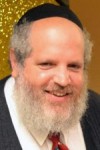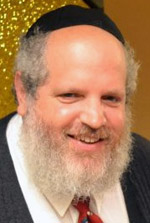Studying Torah should be a constant endeavor
As we all know, it is tremendously important for us to study Torah as the unfiltered word of G-d. If there is something that we do not understand within the Torah, it is our intellect that is lacking, not the Giver of the Torah’s. At the same time, however, it is essential that we use our heads in studying and analyzing the Torah. G-d does not want us to be robotic in our service of Him. Instead He wants us to serve Him with our entire being, which of course includes our intellect. This transitionary book written with the human perspective demonstrates to us how this approach is meant to look. [Rabbi Yeruchem Eilfort]
Studying Torah should be a constant endeavor Read More »
Jewish Religion, Yeruchem Eilfort-Rabbi
